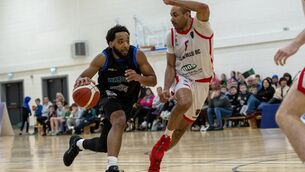After the highs come the crippling lows: When the Olympic dream becomes a nightmare

Jack Woolley is distraught after he was eliminated in taekwondo, describing his performance as poor. Picture: INPHO/James Crombie
How many times have we heard an athlete describe the Olympics as a dream? What of the reality? The majority who make it that far will never come close to a podium or know what it is to stand there on the highest step and listen to your national anthem as the flag is run up a pole.
There are elite and there are elite. Tokyo is playing host to 11,019 athletes over two weeks and only 1,017 medals have been minted, all made from recycled products including old mobile phones. Do the math.














